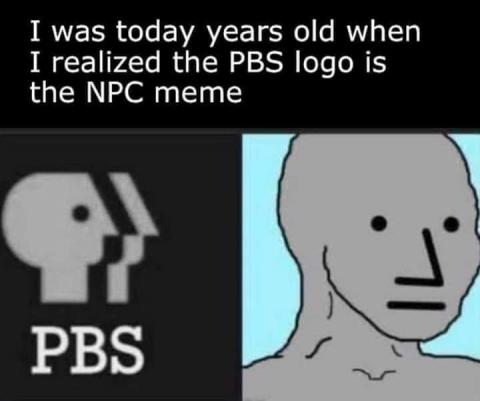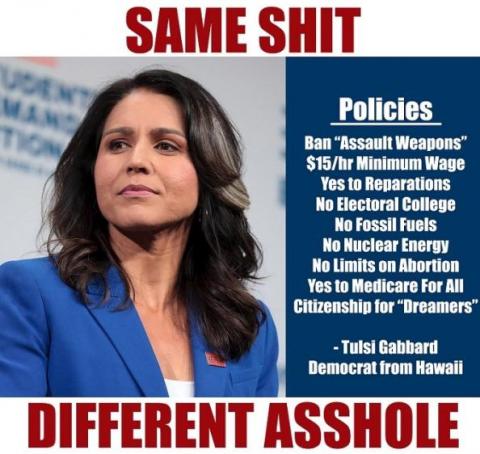This story warmed my heart, because not only was the academic willing to help the small business owners, but the owners decided to open-source their solution for other micro breweries. Granted, the professor's field of expertise was in a science and not a pretend field, like "climate science", so he had the smarts to contribute. Another reason I like this story is because it shows there are possibilities for research and development in various sectors. Academia should be a think-tank resource for business, not only for solutions like in this story, but for thinkers in general. When I hear college teaches critical thinking to students, I try my best to contain my laughter. A college should be for the business world what West Point is for the Army. I'm not saying this synergy doesn't exist, but it's certainly drowned out by the Marxist takeover of academia, where capitalism is tagged the problem, and students are encouraged to pursue careers in agitation and rabble-rousing. Even junior colleges can contribute resource to a small business in some way. Businesses have problems to solve, from production to operations. Not all of them are as complex as the solution in this story, and a group of students could work and study common problems and how to fix them. If they become knowledgeable enough about the business or company, they increase their value, thereby increasing their demand to that company or industry.
This particular problem involved something called "terminal acid shock", which affects small breweries trying to make beer sours:
Terminal acid shock occurs when craft brewers add extra yeast to beers after fermentation to create carbonation before bottling. The problem typically doesn’t affect larger commercial breweries that use a method called forced carbonation. It also usually doesn’t affect smaller brewers not working with sours.
The academic, Indiana University Professor Matthew Bochman, met the business owners on a field trip at the brewery. The owners asked him to help with the problem, and the professor obliged. The result has been amazing for the brewery:
Upland’s line of sour beers is now its fastest-growing segment, he said. Sour beer sales are growing so fast for Upland, in fact, that the company is building a facility adjacent to its downtown Bloomington brewpub dedicated to brewing and bottling sour beers. When it’s done, Upland projects that more than 10 percent of its beers will be sour.
The solution to the brewers' problem has increased sales, and has solidified their sour beer product line. They are now building a facility, which requires the skills of builders, scientists, and others that will be exchanged for compensation. Once it's completed and operational, they will need staff to manage and operate the facility, magically creating jobs out of thin air. Those employees will save and spend their money in the community, benefiting surrounding small businesses.
The success of this endeavor is completely antithetical to the perspectives of Hussein Obama, Bernie Sanders, and other Marxists. Per their economic perspectives, this should not have happened. There can't be happy employees who actually like what they do. Increased profit should not have led to a new facility and more jobs. The workers must be upset, and the owners must be overthrown. To a budding young Marxist Bernie Sanders supporter who may be reading this, yes, really, that actually is the perspective of the Marxist you support. If you understood what you are supporting, you would realize and understand how this story came to be, and how you are attempting to destroy it, albeit hopefully inadvertently. When business owners make money, they buy things and hire people. These particular owners of the brewery, instead of keeping the knowledge of that solution, which would have given them an advantage over their competition, chose to release the solution, so other micro breweries can benefit. Other breweries will now be able to have greater success and grow, buying facilities and hiring more people.
Beer consumers will benefit. We benefit because the free market will bring the cost of the beer down, as the cost to make it has been reduced. This is called "competition". Before you decide to close your mind to it, think about a time you may have gone to a store with several selections of the same type of product. Have you ever purchased the one that cost less? Congratulations, you just helped prove competition works. If you are a true Bernie supporter (I'm using him as an example since we're in the middle of the 2016 Presidential race, but he's interchangeable with any Marxist) then you should have a problem with this. Not just that it works, but the array of selection itself, as Bernie Sanders says is a problem:
You can't just continue growth for the sake of growth in a world in which we are struggling with climate change and all kinds of environmental problems. All right? You don't necessarily need a choice of 23 underarm spray deodorants or of 18 different pairs of sneakers when children are hungry in this country. I don't think the media appreciates the kind of stress that ordinary Americans are working on. People scared to death about what happens tomorrow. Half the people in America have less than $10,000 in savings. How do you like that?
Don't focus so much on Bernie's inability to conceptualize basic economics, but more on his disdain for competition. He wants less choice, which he clearly states here. Somehow, he tries to make the case that capitalism makes others poor. Now, contrast that to a story about Boris Yeltsin when he visited the United States back in 1989 and decided to visit a grocery store:
Yeltsin, then 58, “roamed the aisles of Randall’s nodding his head in amazement,” wrote Asin. He told his fellow Russians in his entourage that if their people, who often must wait in line for most goods, saw the conditions of U.S. supermarkets, “there would be a revolution.”
Yeltsin asked customers about what they were buying and how much it cost, later asking the store manager if one needed a special education to manage a store. In the Chronicle photos, you can see him marveling at the produce section, the fresh fish market, and the checkout counter. He looked especially excited about frozen pudding pops.
“Even the Politburo doesn’t have this choice. Not even Mr. Gorbachev,” he said.
How amazing is that? Boris Yeltsin, newly elected as Chairman of the Presidium of the Supreme Soviet of the RSFSR (it means he didn't have to wait for table at a restaurant) was blown away at the selections of products we take for granted. Before his grocery store visit, he took a tour of Johnson Space Center and saw plans for a space station, probably saw some cool technology, yet the grocery store is what rocked his commie world:
“When I saw those shelves crammed with hundreds, thousands of cans, cartons and goods of every possible sort, for the first time I felt quite frankly sick with despair for the Soviet people,” Yeltsin wrote. “That such a potentially super-rich country as ours has been brought to a state of such poverty! It is terrible to think of it.”
We live in a plush society thanks to capitalism, and stories like the professor and the micro-brewery. Capitalism brings people together and lifts people up. Marxists want to appeal to our desire to do nothing. Working is good for the soul, and gives us personal independence. If you are, say, a Bernie supporter and buy into his Marxist BS, then you really should reflect on where you went wrong in your life. At least, take the time to understand why capitalism works.






